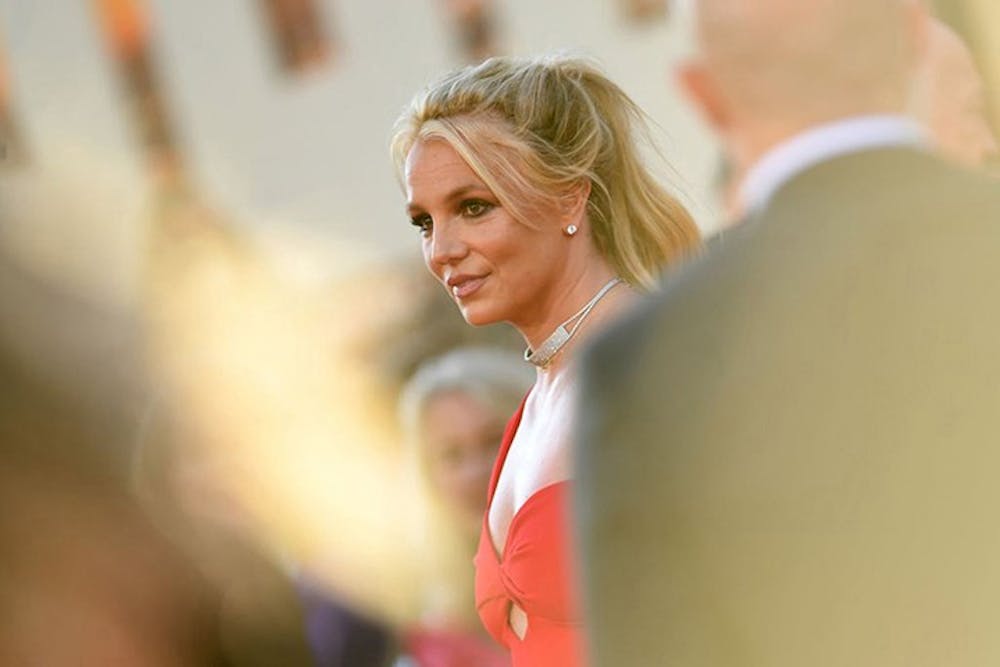All women deserve respect and fair treatment. When any woman — especially women in the public eye — are mistreated, it sets an precedent for how women are treated everywhere.
We grew up on shamed women. Lining the shelves of the checkout line were magazine covers boasting pictures of prominent women at their lowest point. In the morning, the news televised how another star had fallen from grace after being seen smoking, drinking or even just plain looking bad.
When prominent women can’t even shield themselves from this harassment, women as a whole become targets.
Ask anyone and they can tell you about how Britney Spears “went crazy.” But her treatment by the public after her mental health crisis is being reexamined by the #FreeBritney movement on social media, and she has recently seen more success in her music career.
But that success hasn’t barred her from very public criticism and shaming. She was ruthlessly mocked by the press, late-night hosts and the public for going “crazy." Her widely covered manic event was what we would now call a severe mental health episode.
Many young, successful female celebrities faced intense scrutiny over their private struggles that became overwhelmingly public due to invasive press behaviors.
Lindsay Lohan has a well-documented addiction problem. She was mocked for this, often becoming the butt of jokes on late night shows and magazine covers. This sets an example to not take women seriously when facing addiction. In fact, women facing addiction feel stigmatized when reaching out for help, and examples like this show how that stigma is common. Lohan's story is one that many women can relate to.
Paris Hilton was humiliated after a sex tape of hers was leaked. Instead of receiving sympathy for what was sexual harassment, she was slut-shamed and blasted with hateful comments across the media circuit. Women are especially shamed for their sexual history and are more at risk of being sexually exploited. In fact, 81% of women have experienced sexual harassment in their lifetime. From women such as Hilton to women in the workplace, everyone is at risk for this abhorrent treatment.
Hilton's story and subsequent treatment sets a precedent that her story, and women with stories like hers, shouldn't be taken seriously. Tearing down successful women was a business; one the paparazzi were good at. These women's lives were infamous.
What once was seen as a weakness, an addiction or mental health struggles, is now being recognized as human. People are seeing themselves within these women. They have faced addiction, anxiety, depression and exploitation. It no longer becomes funny.
The mistreatment of women extends further than the red carpet. How can women in all roles of life expect respect when the most famous among us can’t even receive it?
Young women in college, and those who are entering the workforce, are especially vulnerable. Many of us here at the University of South Carolina are at the same age these women were when they faced these humiliations. We are entering a stage in which we are vulnerable to these types of character attacks. The way public figures are treated creates an example for the public. We imitate what we see in the media. When serious issues that women face are trivialized within the press, they are also taken less seriously in the outside world.
This treatment affects women everywhere. According to Inc., 54% of women experience workplace harassment, alike to what these women experienced within their careers. Women cannot seem to expect to be respected in any position, whether it be in a job, when needing to receive treatment for addiction or within relationships.
As a young woman entering independence, it can be frightening to see how women are treated. Their treatment is a magnifying glass of what often goes on outside: The shaming and mistreatment of women as a way of controlling them and keeping them down. Women in the public eye shouldn't have to face shame from the media anymore.
Fortunately, it seems that a reckoning is coming. Finally, many of these women are speaking out about their mistreatment, and their stories are being re-contextualized by the public. Old interviews are making rounds on social media and are being seen with fresh eyes. Public callouts have created the effective pressure to solve these issues. Holding those who hurt women accountable is the best way to achieve change.

